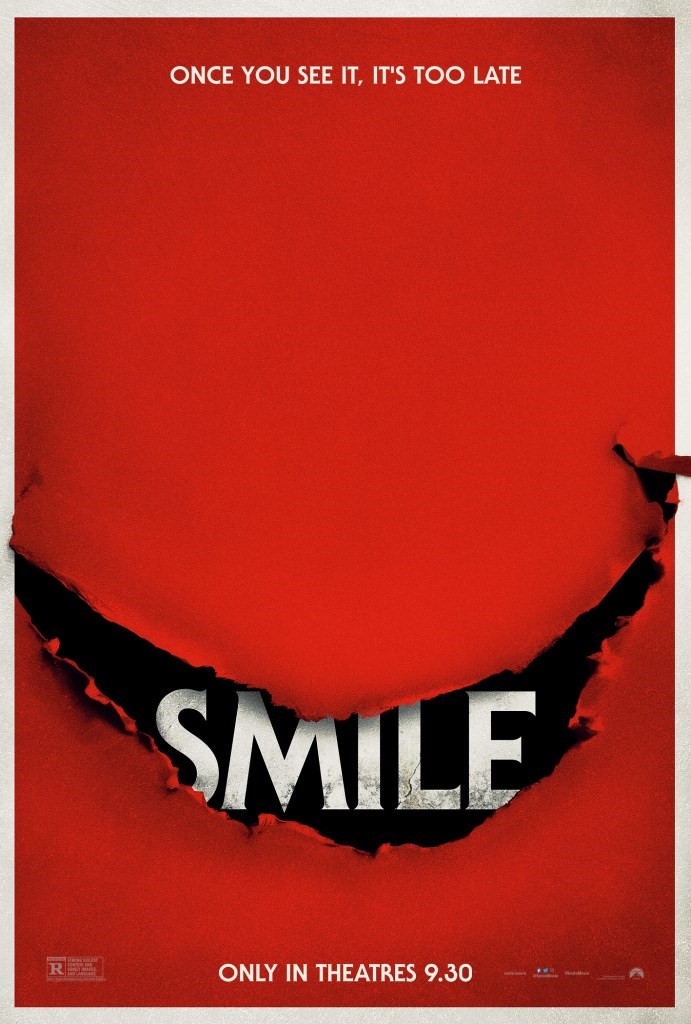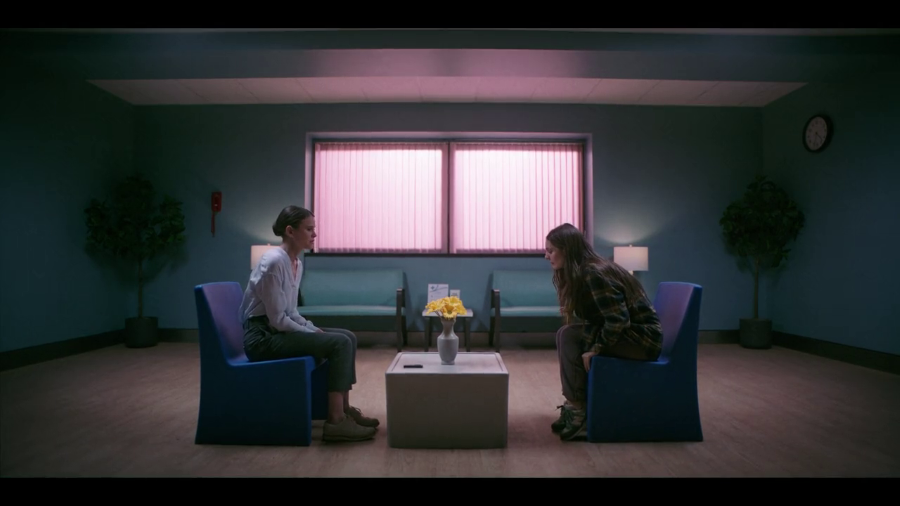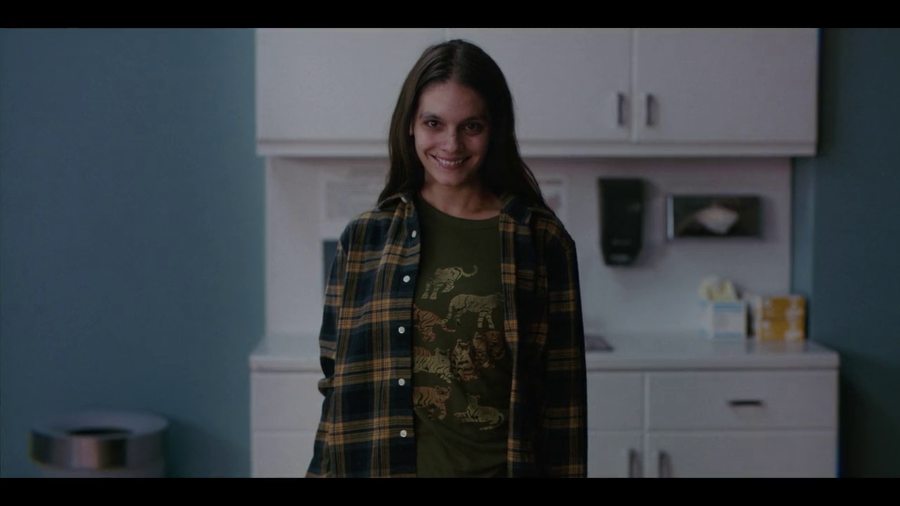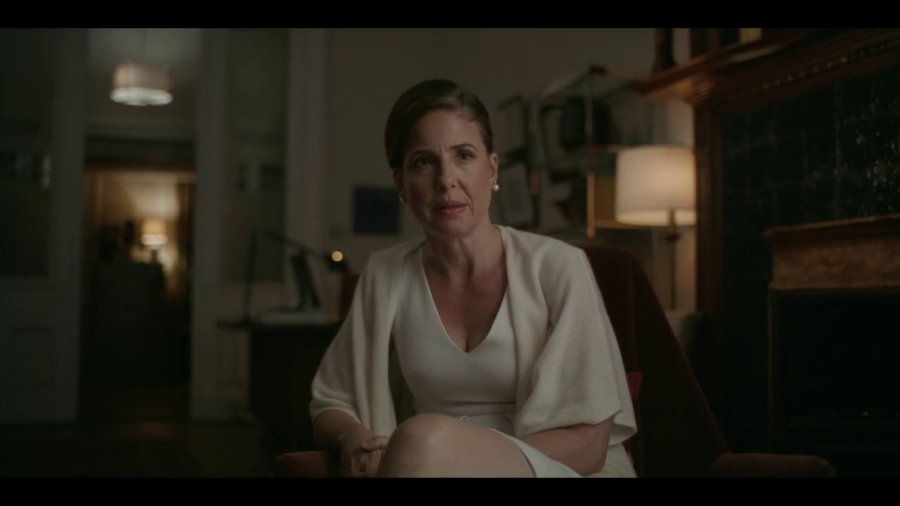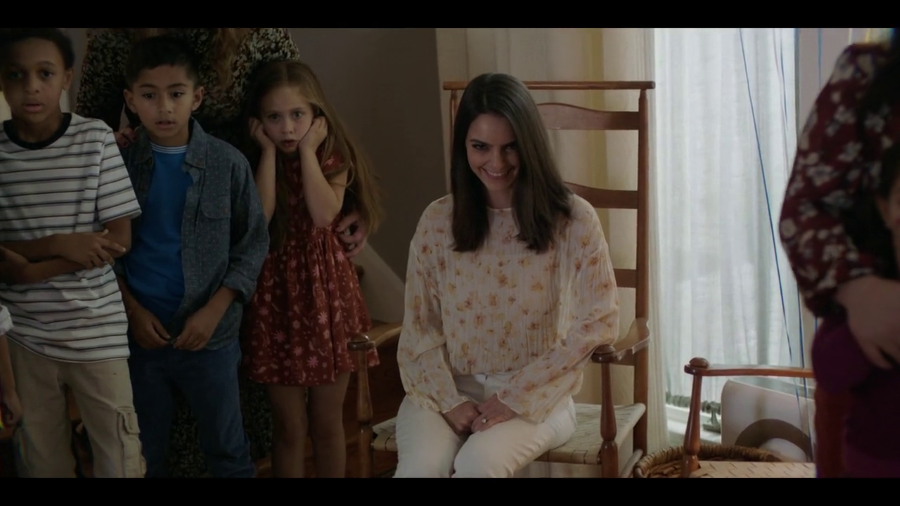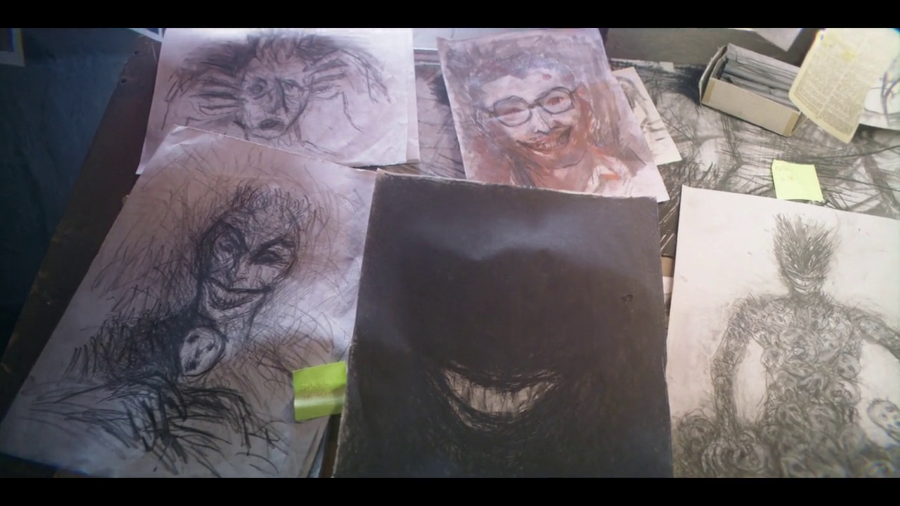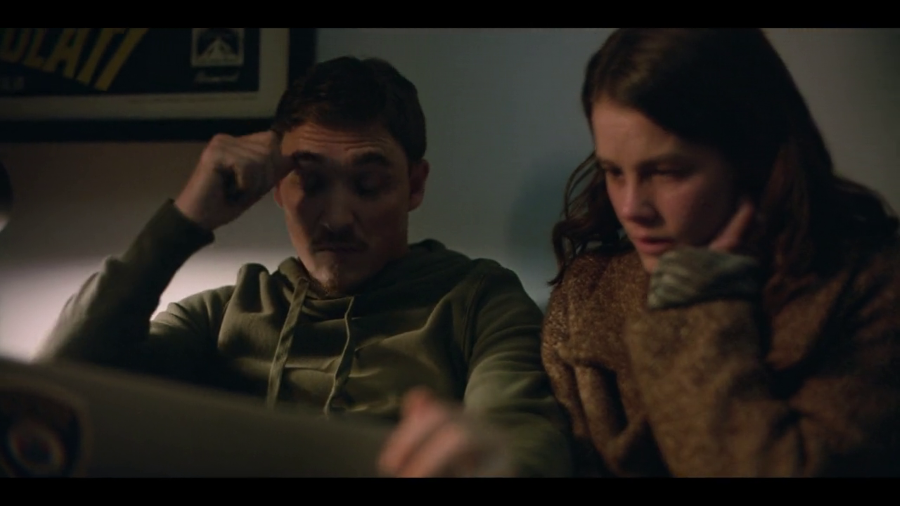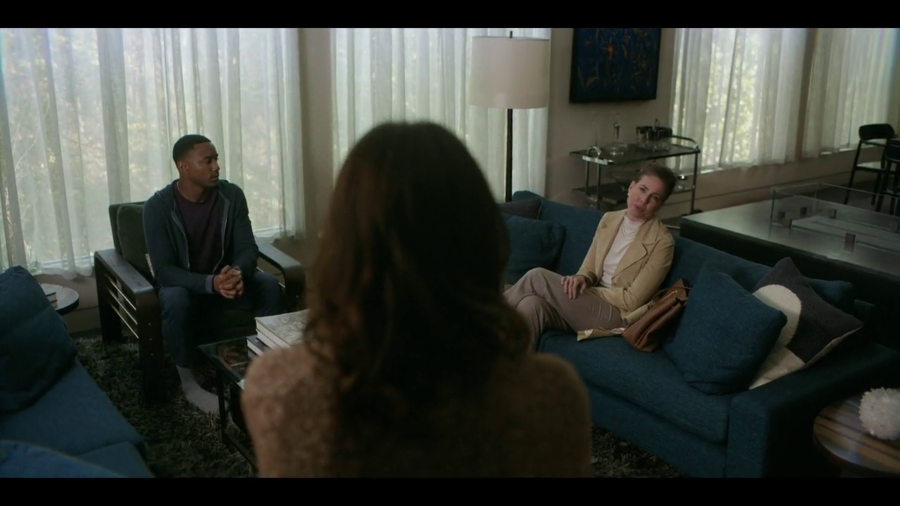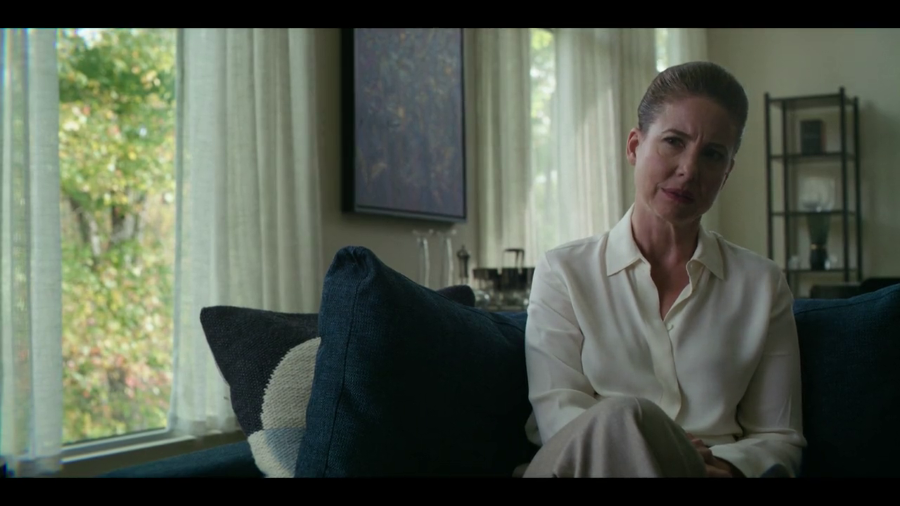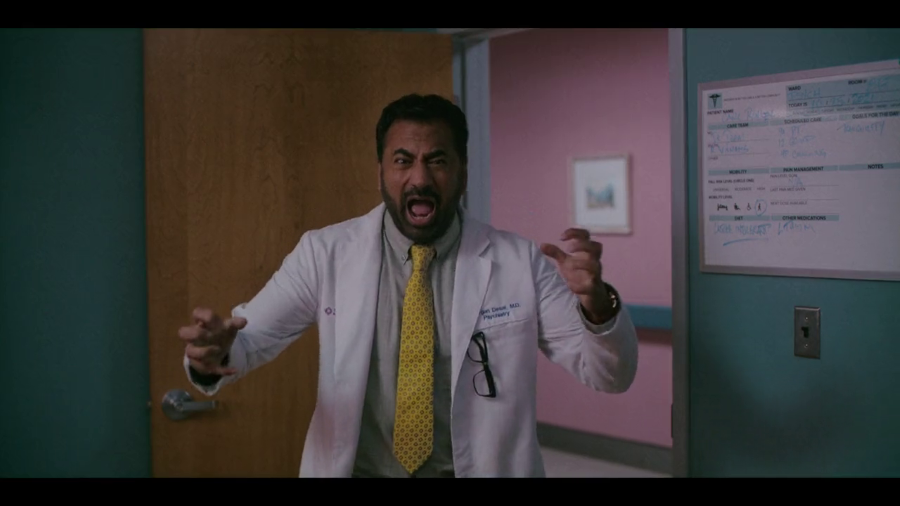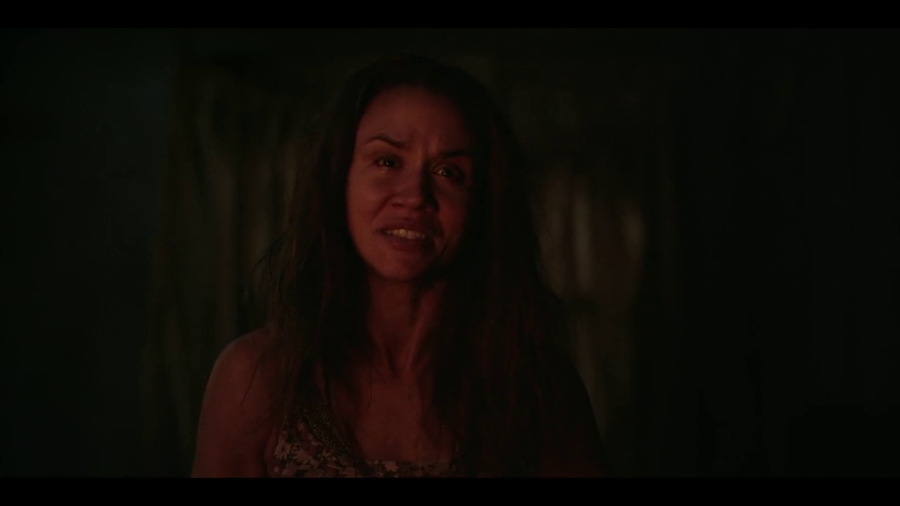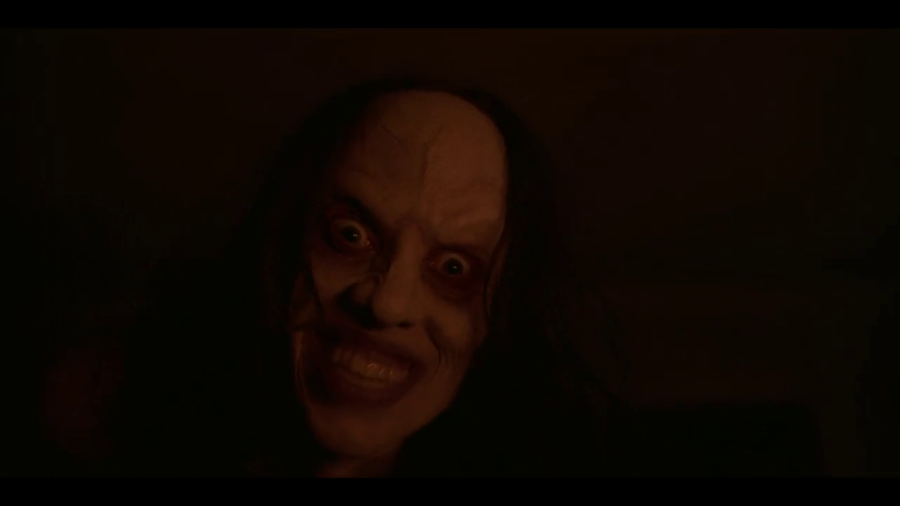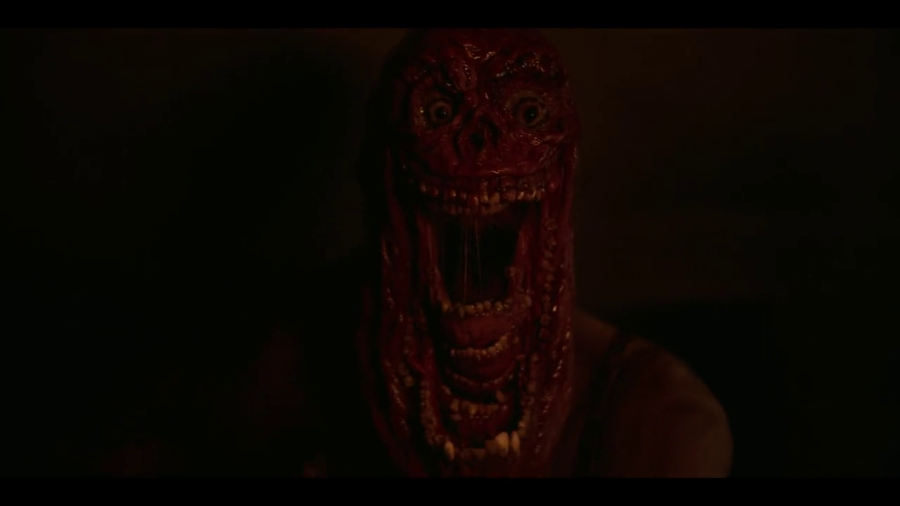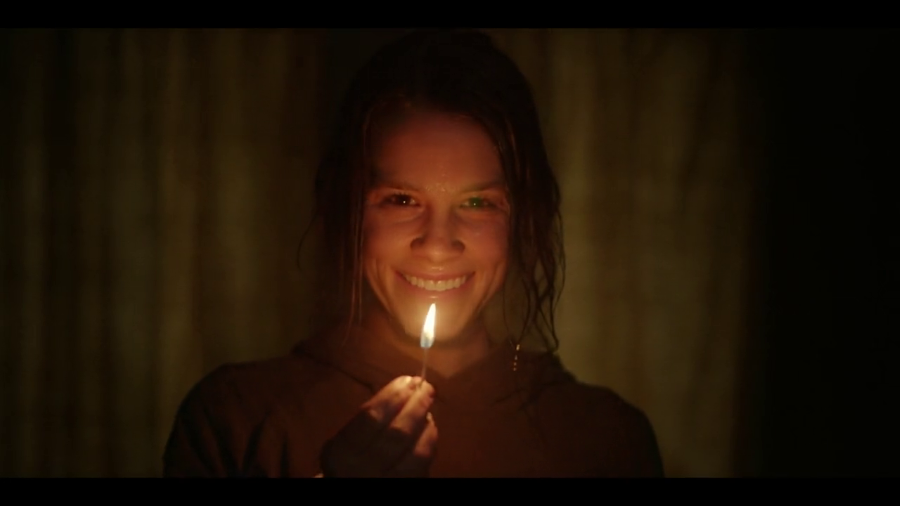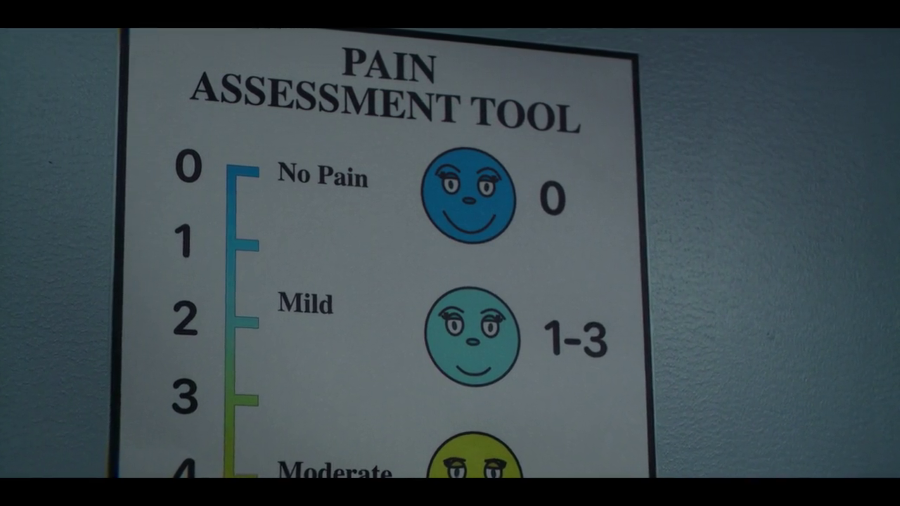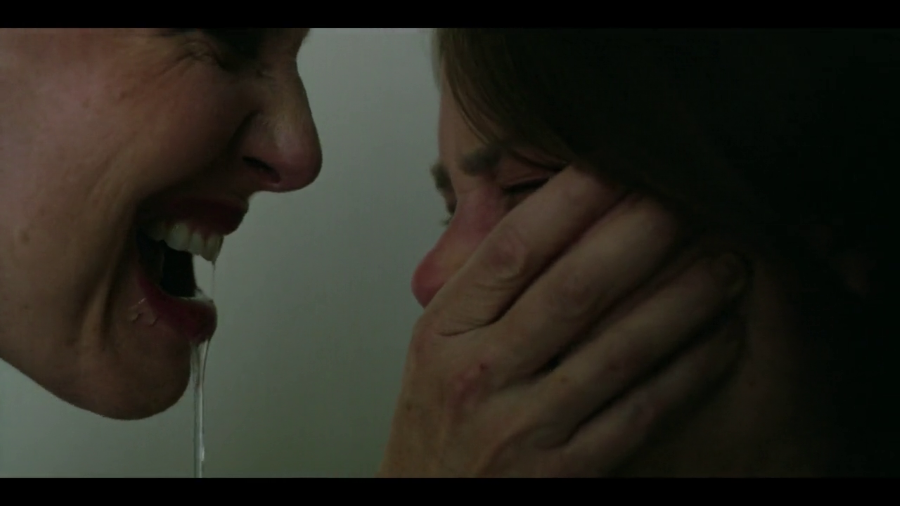By Jonathan Wojcik
ENTRY 08: SMILE
Rose is obviously shaken. She tries to tough it out and continue with her job regardless, until the following day when another of her patients goes from grinning at her to screaming at her that she, too, is going to die. Rose calls for help to restrain the man for threatening her, but it's later found that, to everyone else's perspective - including his own - he had been lying down sleeping all along. Rose's boss is less than pleased, believing she's suffering a mental break that interferes with her job, and forces her to take paid leave.
Rose continues to experience strange phenomena through the next day, even encountering a manifestation of Laura in her own home, and decides to see her own therapist Doctor Madeline Northcott (Robin Weigert) for presumably the first time in several years. Both still believe that what she's experiencing is likely trauma induced, and here we learn that Rose had already spent years in therapy for having witnessed her own mother's suicide when she was only a child.
Rose is picked up from the hospital by her fiancee, Trevor (Jessie T. Usher) and confesses to him everything that's happened thus far, only for him to admit his own fears that she may have inherited her mother's mental illness, and that it may not be something he can spend the rest of their lives together dealing with.
This particular moment culminates in the most startling moment of the film, which was unfortunately spoiled by all of its trailers: while Rose is back in her car, Gillian appears to approach her and knock on the window. Then, this happens.
Later that night, Rose is contacted by Joel, who has continued investigating the pattern of deaths since she left his apartment. It goes back far enough that he can't deny something unexplainable is threatening Rose's life, but there's one single person who seems to have "broken the chain," now living out the rest of his life in prison. Joel helps arrange a visit between him and Rose, where Rose learns that the man survived only by committing murder with at least one witness; it's not suicide that's actually necessary, but any death that leaves mental scars on someone else. Psychological trauma, induced by death, is the vector of the entity.
When the man realizes that Rose is a current "carrier," he flies into an understandable panic, terrified that Rose might pass it back to him by killing herself at any moment.
...But partway through their conversation, Rose receives a call. I know there have been browser issues with video clips, but this warrants aother video clip. Sorry if it stutters or glitches on you. No jump scares or gore/death, just extra spooky directing!
Direct Video Link
It's admittedly a little cheesier when the Madeline-Smiler begins to threaten Rose in a reverberating demon voice, but still dreadful enough, especially as it approaches rose with much heavier, more thunderous steps than should be possible. There's even a little homage to Alien as Madeline corners Rose against the wall and thick, transparent drool cascades from her smiling mouth, echoing the iconic shot of the Xenomorph mere inches from Ellen Ripley's face. It's also not as obvious in screenshots or low-quality clips, but I should mention there's a subtle effect making every "Smiler" look noticeably higher resolution than the surrounding scene or "superimposed" onto the footage. When you notice it, it's wonderfully unsettling.
It is then that she decides to return to where her pain truly began; her remote and long abandoned childhood home, where a much younger Rose she once stood by, failing to call for any help, as her mother perished from a drug overdose. Most importantly, she chooses to confront the entity and the birthplace of her trauma alone, so that whether or not she can "beat" its curse, it will have no one else to transfer into.
As Rose slumps to the floor in defeat, the ghastly figure laughs, and keeps laughing, and begins to pull its own smile wider. And wider...
MONSTER ANALYSIS: THE SMILER
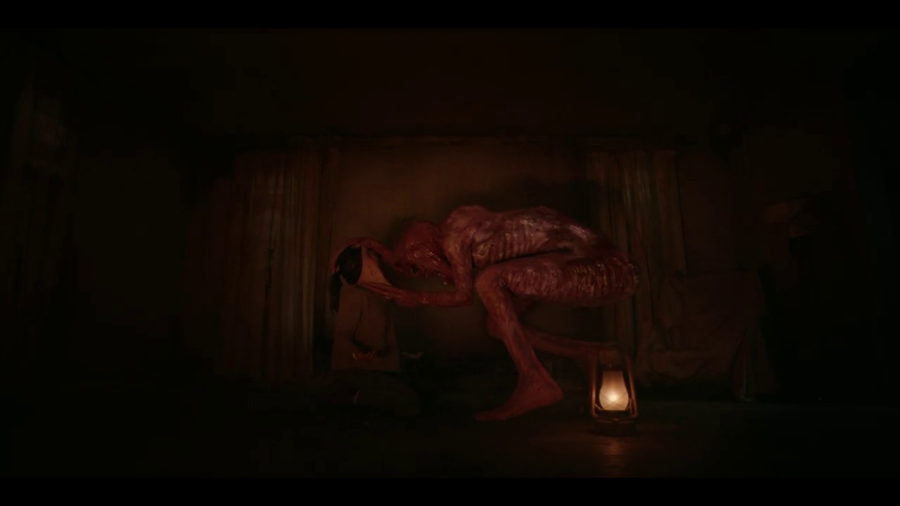
The first reviews I ever read before we went to see Smile had an interesting take on its entertainment value: that it will scratch the Halloween "scary movie" itch for casual audiences while boring the average horror fan with such predictable genre tricks as jump scares or musical stings, but potentially impressing some of the "more hardcore" horror fans with how those old trappings are actually utilized. This sounded a little silly to me, to be honest, your typical film-school overanalysis, but by the end of the movie I knew exactly what they were getting at. The jump scares and other cliche's really have divided a lot of audiences, but while they tend to be gratuitously shoehorned into horror films of every conceivable variety, Smile is a movie where they actually belong. The entity itself tortures its victims by abruptly appearing anywhere, at any time, as anyone, just often enough to keep them constantly on edge, deprive them of sleep and drive them deeper into hopelessness. The "cheap" scares aren't simply how the movie is being shot, but literally how the phenomenon is manifesting to its protagonist, perfectly spaced through her on-screen mental deterioration.
If you're easily startled by these scares, then you can appreciate all the better what Rose is going through. If you're not someone who startles, then the movie doesn't need you to be, because the horror comes more from watching helplessly as the entity sets up that next cruel trick, and you almost get the impression that the entity "knows" we might see its attacks coming; that it's just another part of the sick game it's playing.
And if the director were merely falling back on easy techniques, the rest of the story wouldn't avert so many genre stereotypes. Rose clings to her scientific reasoning for about as long as she possibly can before conceding that she's dealing with something beyond that understanding, she never makes as suicidally foolhardy a decision as you might expect from even the next best horror lead, and other characters are much more realistic in their judgment than I'm accustomed to in fiction; in any other movie, I feel as though the character of Joel would have kept diminishing Rose's ordeal for far longer into the script, even after going over the evidence we all know points to something dreadfully abnormal at work.
Smiles, on the other hand, will come straight for you, in broad daylight, surrounded by your friends and family making to ensure that you become the scariest thing in the room to everyone else, socially isolating you to cultivate the despair on which it thrives. We know from the start how this looks from the other end, too, when Laura clearly perceived Rose herself as a Smiler, and Rose could do nothing as the invisible being took Laura's body on the spot.
Even the final form it takes feels more "derivative" on paper than it is in execution. I've seen a lot of skinless ghoulies with messed-up mouths, but there's a wonderful quality to this one that isn't quite so common in modern horror, a madness to the lidless eyes and the smiles in its smiles in its smiles that leans more towards authentic childhood nightmare imagery than the excessive edginess suggested by its basic concept. And I very much doubt that the skinless, multi-jawed figure is the entity's "true" form in any sense, but its human disguise coming to "resemble" its true self about as much as a jellyfish would "resemble" a human if you put bones in it or a cactus would "resemble" a helicopter if you threw it in the air.
Like the aforementioned Babadook, Mr. McSmile is also both a narrative and in-universe manifestation of trauma, but the conclusion is a much darker one, and it's not because Rose fails to confront or deal with her problems. Much more harshly, it's because no one else is there for her until it's too late, and even when someone finally does care about her, they still don't listen to her. You can't blame Joel for coming to the aid of someone he loves, but the entity wins the moment he defies Rose's final wish, tries to play the hero and follows her to her old house. No matter how understandable that decision is, it is still one that ignores Rose's feelings in a self-centered way that only worsens the situation, and we're left never knowing if she really could have otherwise broken the monster's cycle, perhaps even with her life intact. Whereas the Babadook's conclusion was more about the benefits of owning your own problems and taking control of yourself, Smile's conclusion is more about what can happen when someone's entire support group fails utterly to respect their needs.
NAVIGATION:



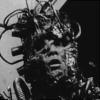


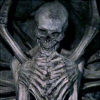

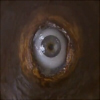
WAYS YOU CAN SUPPORT THIS SITE!



HOME




